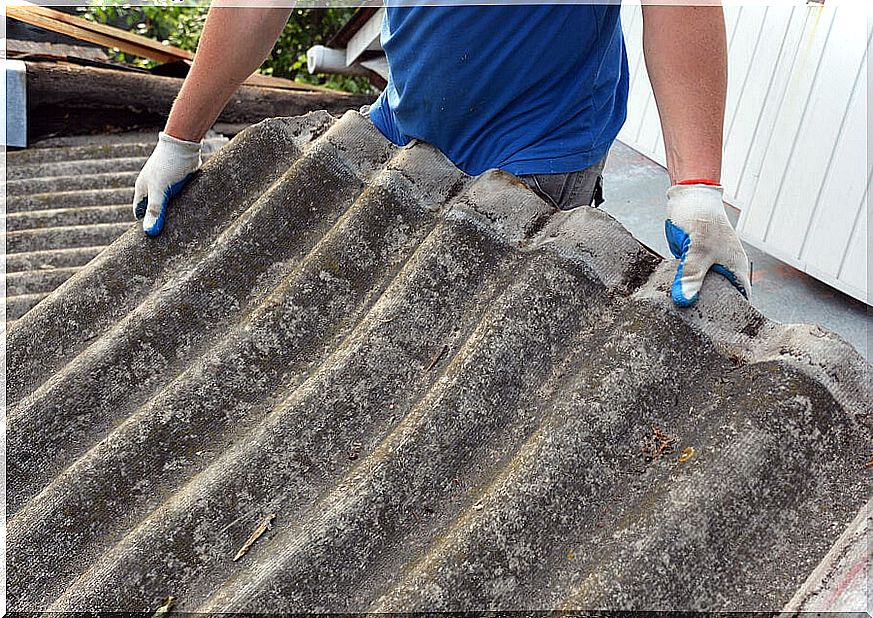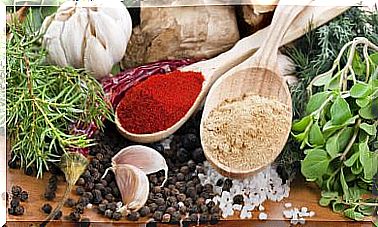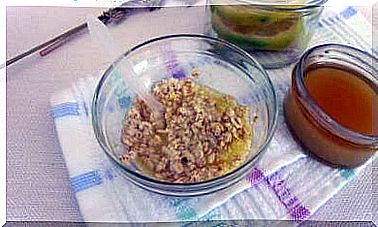7 Ways To Lower The Risk Of Cancer
Cancer is a disease caused by changes in the genes that control the growth and division of cells in the body. It can occur in almost any part of the body and, in fact, sometimes affects several organs at the same time.
Today there is much speculation about this issue, but there is no specific information on what can reduce the risk of suffering from the disease, or what foods and habits we must modify to avoid its appearance.
However, it is suggested that some lifestyle changes could have an impact on making us more likely to develop the disease or avoid it. Therefore, it is important l levar a balanced diet, adopt healthy habits, doing regular physical activity, among others.
Here are some helpful tips that can help reduce your risk of cancer. You must bear in mind that, as it is a disease of multifactorial origin, these habits are not entirely decisive to prevent its development.
1. Avoid exposure to carcinogens
There are some substances, such as asbestos, benzene, glyphosate, among others, that could be linked to an increased risk of developing cancer. In relation to this, a review of Molecular Medicine Reports suggests that prolonged exposure to these components alters the body’s functions, which contributes to the onset of the disease.
Therefore, it is very important to know the risks of these substances and learn to identify them to avoid contact with them. Below, we detail what are its main characteristics and possible risks, according to the aforementioned review.

Asbestos
This fiber is one of the most polluting products for the environment and has been used for years, due to its thermal properties, for the construction of buildings and roads.
Although studies are not yet decisive as to their influence on the development of the disease, there are several indications that the inhalation of these fibers could be responsible for the development of certain types of cancer, such as lung cancer.
Benzene
Benzene is an aromatic hydrocarbon that is used for industrial purposes and is found in the air, mostly, from the smoke that is released from wood, gasoline and tobacco.
The World Health Organization (WHO) warns that exposure to this substance can cause various diseases, such as aplastic anemia and various types of cancer such as stomach, prostate and nose.
Glyphosate
Glyphosate is a herbicide used worldwide, for agricultural or domestic purposes, for the eradication and control of any pest.
Although studies are not conclusive, it is suggested that prolonged or regular exposure to its chemical compounds may influence the development of certain diseases, such as sclerosis, asthma, diabetes, and Alzheimer’s disease and Parkinson’s.
2. Avoid tobacco to reduce the risk of cancer
Tobacco contains several substances that are potentially harmful to health and can contribute to the appearance of this disease. A study published in Oncotarget Journal mentions that it can compromise the health of different parts of the body, such as the mouth, larynx, bladder, cervix, among others.
This same study shows that cigarette smoking is related to at least 13 different types of cancer, including lung, bladder, kidney and pancreas.
It is important to remember that not only tobacco users, but also passive smokers are at risk. Secondhand smoke carries several harmful substances with it, since a person who accidentally breathes it in can also develop cancer. Thus, it is essential to avoid this bad habit in any of its forms.
3. Decrease alcohol consumption
According to a review of studies published in Molecular Diversity Preservation International , the findings suggest that excessive alcohol consumption may increase the risk of several chronic non-communicable diseases, including breast and colon cancer. Therefore, it is essential to limit your consumption as much as possible.
4. Maintain a healthy diet
A healthy diet is basically one in which a good ratio is established between carbohydrates, proteins, fruits and vegetables, in addition to including fresh foods and avoiding those that are processed.
To this last group correspond the industrial-type meals that are known as junk food or packaged foods. Therefore, the more natural the food is, the more beneficial it is for health.
A publication in American Family Physician suggests that a healthy and balanced diet should include fruits and vegetables, fats, proteins , legumes, whole grains, and nuts. It is recommended that fruits and vegetables occupy at least half of the plate. Likewise, it is essential to limit the consumption of added sugar to less than 10% of the daily caloric intake.

5. Do daily physical activity
Exercise has proven to be a good ally when it comes to maintaining physical condition and helping to prevent certain diseases, ranging from overweight and stress, to cancer. However, it should be remembered that not all organisms have the same physical capacity. Therefore, it is necessary to go to the doctor to establish an effective routine according to the needs of each person.
When it comes to cancer, a review published in the Canadian Medical Association suggests that a routine of moderate physical activity, lasting 30 to 60 minutes a day, contributes to reducing the risk of some types of cancer, such as colon and Mommy.
6. Use sun protection
Skin cancer has become one of the most common, and its main cause is the lack of protection when exposed to the sun. That is why it is very important to apply sunscreen every day, even when the day is cloudy or raining.
Although sunlight is necessary for certain body functions, a study published in the European Journal of Cancer explains that frequent and prolonged exposure to the sun has an increased risk of skin cancer or melanoma.
Accordingly, it is best to avoid direct sun exposure, especially between 10 a.m. and 4 p.m. If there is no alternative, it is advisable to wear sunglasses and a wide-brimmed hat. It is also suitable to cover the skin as much as possible and stay in the shade.

7. Watch your body weight
Maintaining a healthy weight is important when it comes to taking care of your health, since it not only reduces the risk of cardiovascular diseases, diabetes and hypertension, but also the risk of suffering from different types of cancer.
A study published in Cancer Causes and Control warns that being overweight is directly related to an increased risk of colon, kidney, pancreas, endometrial and esophagus cancer. Added to this, various tests show that it also increases the risk of leukemia, lymphoma, multiple myeloma, and liver and gallbladder cancers.
See your doctor to prevent cancer
There are symptoms that often go unnoticed, or seem irrelevant, and only a doctor can interpret them correctly. For this reason, it is important to carry out a medical check-up on a regular basis to detect abnormalities or evaluate these clinical manifestations. A timely diagnosis will be key to improving the prognosis.









